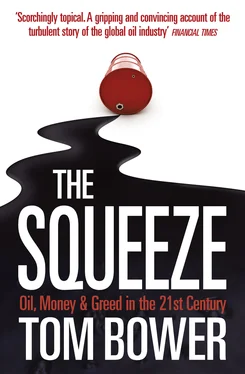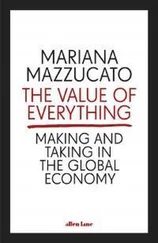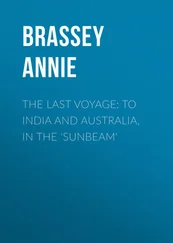Chevron was intent on betting everything on Kazakhstan, yet the Kazak government was tempted to choose BP. In November 1991 President Nazarbayev arrived in London to meet BP experts to review the deal he had signed in June 1990 with Chevron. Tom Hamilton had been dispatched by BP to Tengiz. ‘The more I looked,’ he had reported to Browne, ‘the more I disliked. There’s abundant crude but too much baggage including 10,000 local staff.’ Investing in Tengiz, he advised, was too risky. Critically, the building of a pipeline to transport the crude to a port across Iran or Russia had not yet been decided, and Kazakhstan’s claim to oil from the Caspian Sea lacked clarity. With oil at $15 a barrel, Hamilton recommended that Azerbaijan was a better bet.
In October 1992, Ed Whitehead negotiated on BP’s and Statoil of Norway’s behalf to pay $40 million for the exclusive rights for a consortium of oil companies to establish whether Azerbaijan possessed commercially viable reserves. The licence lasted for just 36 months. While three teams negotiated in Baku, Moscow and London, another was dispatched to establish the viability of the deposits. Across the Caspian’s shallow waters it found leaking pipes, abandoned equipment and decrepit offshore rigs, visible relics of the bedlam of the Soviet era. Beneath the sea there was, according to Soviet estimates, 3.5 billion barrels of oil. To transport it, an existing pipeline called ‘the northern route’ passed through neighbouring Russia to the Black Sea. Hostile towards Azerbaijan since independence, Russian prime minister Viktor Chernomyrdin and the foreign ministry threatened to veto Azerbaijan’s oil exports by limiting the pipeline’s use.
Negotiating with Moscow was straightforward compared to the governments in Azerbaijan. Two presidents had come and gone since Ed Whitehead arrived in Baku before Heydar Aliyev, a former chief of Azerbaijan’s KGB, grabbed power in a coup in June 1993 in which British agents were alleged to have offered weapons to Aliyev’s supporters. To ease the third attempt to secure a concession, John Browne organised for ex-prime minister Margaret Thatcher to visit Azerbaijan, and BP offered the government’s leaders $70 million as a ‘bonus’ to finalise the $7 billion development. Having put itself in prime position to be awarded the licence, in early 1994 the BP team awaited Aliyev’s agreement to sign the contract which since 1992 had been increasingly tilted in Azerbaijan’s favour. Inevitably, there was a twist.
The successful negotiations, led by Al Gore and British prime minister John Major, to persuade Chernomyrdin to allow the consortium’s use of Russia’s pipeline to the Black Sea, prompted Aliyev to declare, as a negotiating ploy, that foreign help was no longer required. In a region infested by corruption, intrigue and wars, the demand by Marat Manafov, a pistol-waving associate of Aliyev’s, for a final $360 million bribe to allow the Western consortium to continue negotiations was the last straw. Officially, the tendering process was halted until a new contract could be agreed. Browne calculated his response. Appealing to the dictator was pointless. The time had come, Browne decided, to call the government’s bluff. ‘ Circumstances change,’ Phil Maxwell of BP told journalists as he emptied his desk in BP’s Azerbaijan headquarters, the mansion of a former oil baron, before flying back to London. Maxwell explained that BP was cutting its staff in Baku from 80 to 30 until President Aliyev resolved the uncertainty and was reconciled to competing on the world market. For some weeks the Azerbaijani government prevaricated. The president wanted a large number of investors in order to protect the new state from Russian aggression, and he wanted to play the oil companies off against each other. Unusually, BP, Statoil, Amoco and the five other minor partners in the consortium remained united. Aliyev’s bluff was called. The country’s financial fate and his survival, he knew, depended on producing oil within four years. Even if oil remained at $15 a barrel, Azerbaijan’s income would be $100 billion over the field’s lifetime, a phenomenal windfall. The Azeri government blinked. The agreement, dubbed ‘the Billion Dollar Experiment’ by Exxon and ‘the Contract of the Century’ by Aliyev, justified a celebration. One thousand guests were invited to the signing ceremony and dinner on 20 September 1994 in Baku’s Gulistan Palace. The star guest would be John Browne. Others invited included William White, the US deputy secretary of energy, eagerly promoting Chevron’s and other American involvement in the region.
Browne did not stay overnight in Baku, but left midway through the Azerbaijan government’s celebratory banquet following the signature of the ‘Contract of the Century’ to take his private jet back to London. ‘That was not good politics,’ President Aliyev later told BP’s local representative, who concurred with his view. Browne was unconcerned. A done deal meant moving on. The political settlement, he believed, was best executed by others: Aliyev would be invited to London in 1997 to meet Queen Elizabeth at Buckingham Palace. The local settlement between Azerbaijan, Russia and Turkey was delegated to Terry Adams, BP’s appointee to chair the consortium of 13 shareholders. ‘Without a pipeline there will be no development,’ said Adams, who had also advised against BP’s investment in Kazakhstan after anticipating Chevron’s problems with building a pipeline. While President Clinton unconvincingly posed as an ‘honest broker’, Adams chose to negotiate in Moscow. With the help of British diplomats, he successfully arranged in October 1995 to use the northern route pipeline through Russia to the Black Sea, and began planning a new pipeline, avoiding Russia, through Turkey to the Mediterranean. Piping Caspian oil and gas to Turkey became BP’s and Adams’s recurring problem. Ignoring the cost and the political complexities, President Clinton was determined to wrest control of Caspian oil from Moscow, regardless of the anger this aroused in the Kremlin. Turkey had become critical to the West’s strategic interests.
In Washington, Bill White, the deputy secretary of energy, and Rosemarie Forsythe, the Caspian expert on the National Security Council, urged Clinton to adopt policies to divert the region’s oil to the West regardless of Russia’s historic links. Rejecting those who urged the administration to act generously towards Russia, Forsythe displayed petulant anger at Russia’s failure to provide a level playing field for Western oil companies. To outwit Moscow, she supported the construction of pipelines from Tengiz and Azerbaijan which bypassed Russia. Aggravating Moscow did not trouble Forsythe, who would be described as ‘ Amoco’s ambassador to the NSC’. An alternative policy was advocated by Strobe Talbott, the president’s special envoy to Russia. To encourage Russia’s reformers to increase investment and to Westernise the country, he favoured a conciliatory approach. Securing Russia’s trust, he argued, would guarantee Russian oil supplies to the West over the long term. Forsythe rejected that measured approach. She was particularly irritated that ENI, the Italian energy company, seemed to enjoy favourable treatment compared to American oil companies. The Italian outsider had traditionally undercut the Seven Sisters’ cartel during the 1950s, first in Iran, and then in North Africa and Russia. Now, the Italians once again seemed to be exposing the oil majors’ vulnerability in the oil-producing nations. Clinton fought back. Unwilling to reconcile the contradictory policies among his staff, he pursued American interests regardless of the consequences during a meeting he and Al Gore held with Yeltsin soon after the signing ceremony in the Gulistan Palace. America’s oil companies, he told the Russian president, were entitled to Caspian oil. Resolutely, Yeltsin replied that the pipeline and Azerbaijan’s oil were Russia’s and not America’s interest.
Читать дальше











![John Bruce - The Lettsomian Lectures on Diseases and Disorders of the Heart and Arteries in Middle and Advanced Life [1900-1901]](/books/749387/john-bruce-the-lettsomian-lectures-on-diseases-and-disorders-of-the-heart-and-arteries-in-middle-and-advanced-life-1900-1901-thumb.webp)
